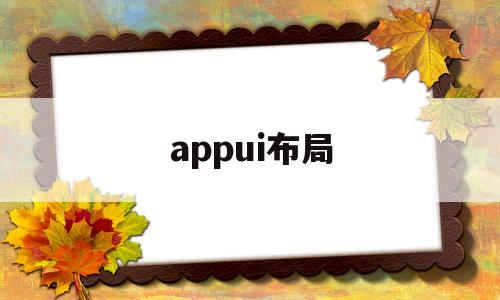用whathashappened造句(what will happen to sb造句)
1、英语的物称倾向在其造句中十分明显最具代表性的是主语的选择英语常出乎意料地选择不能施行动作或无生命事物的词语而汉语一般更习惯人称化的表达,尤其是主语,能施行动或有生命的物体为主语首选如1 What has happened to you?你出了什么事儿啦?2 An idea suddenly struck me我突然想到一个主意3;不能说“某事物发生什么什么”而得说成“什么什么发生在某地”“什么什么发生在某人身上”等等于是,这两个句子说成英语是这样的Great changes have taken place in our country since the reform and opening policy was carried outHe has not turned up yet What has happened to him;He saves what he earns 他赚多少,积蓄多少What Mary is is the secretary 玛丽的职务是秘书2 表示“的人或的样子”He is no longer what he was 他已经不是以前的那个样子He is what is generally called a traitor 他就是人们通常所说的叛徒Who is it that has made。
2、What has happened to the youth of this generation, which has set it so far apart from the rest?在这些年轻人身上到底发生了什么,使他们与其他的同龄人有着这么大的分歧Apart from this, no extra quotwhite spacequot should exist at the end of a line or on the line beneaththe last;恍然大悟的意思是对某一事物突然明白突然醒悟这个词的结构属于偏正式成语,可作定语谓语状语与它意思相近的汉语成语有豁然开朗如梦初醒等成语“恍然大悟”这个汉语成语的出处是宋代释道原的景德传灯录卷五,书中记载“薛简蒙指教豁然大悟”,其中的豁然大悟与恍然大悟意思一致;1In no way am I responsible for what has happened我决不对发生的事情负责2She was in no way to blame决不应该责备她3I am in no way to blame我一点也没错4You can in no way surrender你绝不能投降in no case 在任何场合都不等于“not in any case”You;imagine的用法,这个经常考意思想象, 猜想, 推测, 认为, 相信 1例子You can imagine the situation there你可以想象那里的情况2imagine引导从句He imagines that people don#39t believe him他总是认为人们不信任他I can#39t imagine what has happened我想像不出发生了什么事;1 想像W+wh+that+vingO4I can#39t imagine what has happened我想像不出发生了什么事You may imagine their astonishment at finding the room empty你可以想像他们发现房间里空无一人时那吃惊的样子2 臆断+that3 猜想,料想WY+thatI imagine you;take back的造句 1 Take back what you said about Jeremy!收回你说的关于杰里米的话2 Shops are often reluctant to take back unsatisfactory goods商店一般都不愿收回顾客不称心的货物3 Even four horses cannot take back what one has said一言既出,驷马难追4 I take back what。

3、Without books, we will not know what happened on the Earth thousands of years ago Thanks to books, we have a clear history of things that have happened in our country, as well as in other countries in the world By studying history, we learn from the mistakes our ancestors have made;What a fine day it is!天气多么好啊!2What+形容词+复数名词+谓语 What funny stories they are!他们是多么可笑的故事啊!3What+形容词+不可数名词+谓语 What great progress he has made!他取得了多么大的进步呀!2由quothowquot引导的感叹句quothowquot意为quot多么quot,用作状语;这样才能逐渐熟悉这些规则和用法 3语法概念不清有些语法项目不是单纯记住语法规则就能正确运用的,而应根据具体语境分辨其语法意义才能确定应采用的语法形式 例如I wrote a letter when he was ing时态误用Can you tell me what was happened just now?语态误用The tired trip made all of us tiring。
4、9I#39m not sure what happened to our plans我不确定我们的计划发生了什么变故10I knew something like this would happen 我早就知道这样的事情会发生11Despite our best efforts, nothing happened as we expected尽管我们已经尽力了,但却和我们预期的不同12What w;What amazes us is that around 540 million people are affected by second hand smoke 2010广东高考考场作文 4 使用倒装句,强调句,虚拟语气等 使用这些句式可使文章化平淡为生动,加强语气,使评卷老师感受到作者的强烈情感 He did not know what had happened until he had read the news in the;what has happened我想像不出发生了什么事3固定用法imagine one#39s doing 例子I can#39t imagine his eating up the bread我不能相信他把面包吃光了I can#39t imagine his being late for school我不能相信他上学迟到这个经常考啊,记住记住,没有imagine to do这种形式;I needed consider what would happen if I quit my job I could not pay my bills or save money for fun activities I would need to find a different job Any important decision has dozens of effects, so it is wise to evaluate what those might be Finally, you can get the opinion of。









 陕ICP备2021009819号
陕ICP备2021009819号